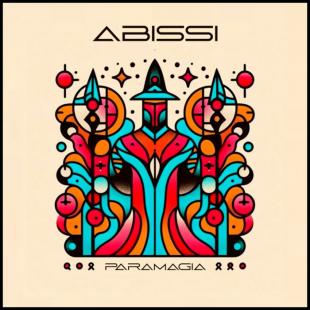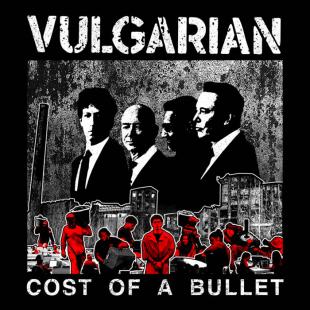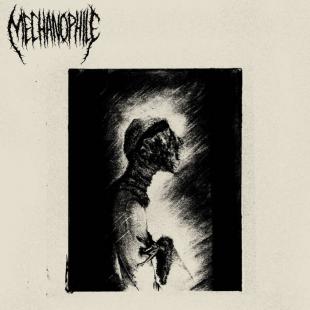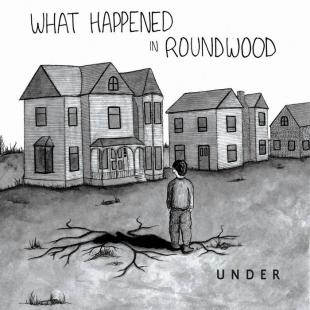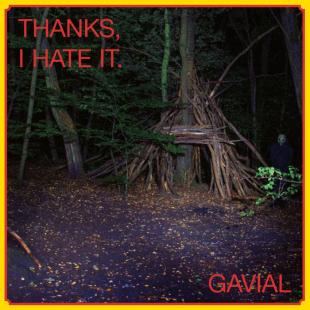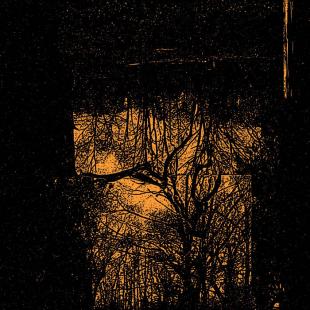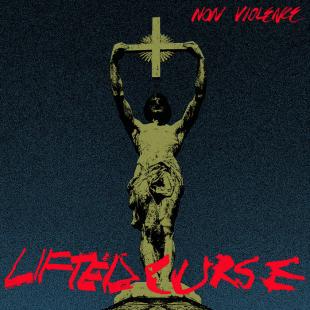DE Bill
-
-
 WickedWesticle
WickedWesticle - Anyone know much about this? Support it? Oppose it? I've been reading a bit about it all but I still feel pretty in the dark.
-
[10:47 on 09/04/10]
-
-
-
 mamba
mamba -
I think Ben's your expert on this, judging by facebook.
I think I oppose it, but like you, don't really know enough about it. -
[10:54 on 09/04/10]
-
-
-
 WickedWesticle
WickedWesticle - Yeah from my limited knowledge I'd say I oppose it.
-
[11:06 on 09/04/10]
-
-
-
 Podge
Podge -
De bill was de best police drama on de telly [Edited by Podge at 11:28 on 09/04/10]
-
[11:27 on 09/04/10]
-
-
-
 Enos The Chimp
Enos The Chimp -
It's a disaster to say the least.
It works on a guilty until proven innocent basis which goes entirely against the basic principal of a democratic legal system. It was hurried through in the 'wash up' period before parliament gets dissolved for the coming election without proper debate. On top of that the government ignored the 20,000 letters of opposition that they received in the couple of days leading up to the hearing and all the advice of the ISPs.
Here's an example to give you an idea of the sort of problems the bill presents. If 5 people are living in a shared house and one person downloads a film the whole household loses it's internet connection which means if, for example, you're a student household you're going to find yourself in a tricky situation.
The same applies to internet cafes, libraries, schools or anywhere that offers a wi-fi service.
Another problem is the way they want to block websites. For example I run a free to download zine and we occasionally give away free MP3s, under the DEbill we could potentially come under scrutiny and would probably get blocked, especially the forum as people share links to You Tube etc. Even though we're not actually breaking the law we would still then have to pay to go to court and prove our innocence.
There's all sorts of freedom of speech issues here, especially considering the whole Wikileaks thing that's been going on recently.
Have a look at these links for a bit more info.
Skeptobot.com
BBC website -
[12:34 on 09/04/10]
-
-
-
 Mazz
Mazz - I think it's time to get radical...I think it's time for direct action.
-
[12:38 on 09/04/10]
-
-
-
 bad admiral
bad admiral -
Mazz says:I think it's time to get radical...I think it's time for direct action.
yeah...do a shit on the pope...that'll learn 'em... -
[13:27 on 09/04/10]
-
-
-
 Mazz
Mazz - Do a shit up the pope ass...yeah...up his ass
-
[13:34 on 09/04/10]
-
-
-
 Ben
Ben -
Basically what Enos said. It's an affront to democracy and very backwards looking way. Instead of getting the music/film/etc industry to update their business model to make it easier for people to licence things and legally obtain things (which would reduce piracy) they are going to disconnect people from the internet without any proper scrutiny (which will not reduce piracy). Oh you do have the right to appeal through the courts tho, as long as you have the thousands of pounds you'll need to pay for it.
Essentially this will be the death of open wifi (there are no exceptions for this), and will do nothing at all to stop piracy. In fact, looking at other countries such as France who have already introduced similar draconian laws piracy has gone up since their introduction.
All that will happen is the tech-savvy people who illegally download will carry on in ways that are much more difficult to detect and the only people disconnected will be average types, whose whole family will be punished because of the ALLEDGED infringing of one member (or the guy who cracked their wifi security, which is fairly trivial these days).
All this has happened at a time when CD and DVD sales have been increasing year on year and are currently at record levels. Oh and several studies have shown that people who download more buy more. So they are literally going after their best customers.
The way it has been forced through Parliament with no proper scrutiny has made me so furious - they have sold our digital future to the fat cats in the BPI. -
[15:16 on 09/04/10]
-
-
-
 WickedWesticle
WickedWesticle - Good work dude that's a good explanation.
-
[15:21 on 09/04/10]
-
-
-
 Enos The Chimp
Enos The Chimp -
You might be interested in this. It was posted on The Register and makes for an interesting read . . . .
"Now that the Digital Economy Act has been passed by both Houses, what can internet users expect, and when? Quick answer: nothing much soon.
The outgoing government says it introduced the measures because in the 20 months since the MoU between ISPs and copyright businesses, little progress has been made. So the P2P part of the Bill is actually a long set of instructions for Ofcom, inviting it to draw up a code of obligations for both ISPs and copyright holders. The code of practice will guide how both parties deal with infringement, mainly from P2P use.
The invitation to start work on the initial code, then, is the starting pistol - and it may go off in mid-May, when the next Parliament convenes, or later.
Ofcom is then invited to spend six months drawing up the code for handling copyright infringement notifications. During this time it is expected to consult widely: the Act mentions rightsholders, service providers, subscribers and anyone else interested. Clearance with the EU is also required for this code, as BIS explained here.
The UK government must show the measures are consistent with "Convention Rights, with European Directives on subjects such as copyright protection, Internet Service Provider liability and privacy and in a way that is consistent with principles of administrative law."
Don Foster MP didn’t think it could be done in less than three months, speaking in the Commons this week.
The code agreed will be put into practice for a year, during which the outgoing government hopes lots of new music services will appear, and casual infringement will fall. As BIS wrote in an explanatory note earlier this year:
“The ultimate aim of the legislation is to shift people’s behaviour from the unlawful to the legal.”
One view is that up to now people have used P2P because they know they’re not being watched, and 12 months of monitoring may be enough to change that. Another view is that they may not care that they’re being watched, and are willing to take their chances.
If the former view turns out to be nearer the mark, then the story ends there. Everyone breathes a sigh of relief. The government says it expects that the volume of CIRs, or Copyright Infringement Reports to be high – but generating these is expensive for copyright holders, and processing them even more expensive for ISPs. It’s not what either of them should be doing.
If people don't stop downloading illicitly the full 12 months must elapse before the Secretary of State can draw on powers to act further.
If at that point infringement has not fallen sufficiently in his judgement, the Secretary can order Ofcom to draw up “technical measures” to be introduced by the service provider. Ofcom has a palette of four options, as the Act defines a technical measure as something that does one or more of the following:
1. Limits the speed or other capacity of the service provided to a subscriber
2. Prevents a subscriber from using the service to gain access to particular material, or limits such use
3. Suspends the service provided to a subscriber
4. Limits the service provided to a subscriber in another way
The technical obligations are then presented to Parliament for inspection, and must pass a vote in each House.
So if you add it all up, then a code can’t be put in force any sooner than early next year, 2011, and even then 12 months must elapse before any technical obligations are sharpened. We’re looking at Spring 2012 for the first technical measures being put in force.
Remember that the subscriber has two tiers of appeal – to the ISP or to an independent appeals body. This is where the important Lib Dem amendments, now almost forgotten, become important. Rather than a Star Chamber, as originally envisaged, the appeals body is obliged to presume innocence.
For anyone determined to be the first Mandybill Martyr, the first bandwidth throttling or account suspension won’t then take place before Summer or Autumn 2012 – well over two years away.
A lot can happen in two years. Then again, we had high hopes in July 2008, too. All we've had since then is Spotify. ®
Bootnote
What about the old Section 18, you ask, the bit about web-blocking? The future of this can of worms is so uncertain we'll defer discussion on that for the moment. It may not survive scrutiny in the 60-day eyeballing opportunity promised in the new Parliament." -
[15:29 on 09/04/10]
-
-
-
 Big Si
Big Si -
Good article there. Despite the unbelievable shafting of democratic ideals that have taken place over the last couple of days, and even if the bill is passed into law as it stands, we're still a long way from webageddon.
Sod all will get done now until post election. The important is not to forget about this, and once the dust has settled, everyone needs to start causing a ruckus with their MPs - not least asking them where the fuck they were during the reading of the bill, especially if they then voted on it (can't find the link now but there's a site with a list) - and ISPs - ask them if their stance mirrors Talk Talk's, and if not, why not.
Oh, and I like this article too, for a hollow, bitter laugh.
Fucked if I'm voting for any of the tossers. -
[18:07 on 09/04/10]
-
-
-
 Ben
Ben - Also, the Open Rights Group are worth supporting if you care about fighting the bill.
-
[18:44 on 09/04/10]
-
Forums - General Chat - DE Bill
